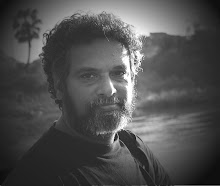Celebrating theatre
ANUPAMA RAJU
Preview The annual National Theatre Festival begins in Kozhikode on March 27.

Scenes from ‘Peer Gynt' (above) and ‘Lankalakshmi.'(below). Photos: H. Vibhu and S. Gopakumar
What does quality mean in creation? How does one understand quality in art from different perspectives?
These questions give way to some of the most varied and interesting plays that will be showcased as part of the National Theatre Festival scheduled to begin on March 27 in Kozhikode. This sixth edition of the National Theatre Festival is striking for the variety it brings, says Abhilash Pillai, director of the festival.
 Ranging from the most popular to the most experimental, to the most ‘modern' to the most ‘traditional,' the festival has brought together plays and theatre forms from different corners of the country, he says.
Ranging from the most popular to the most experimental, to the most ‘modern' to the most ‘traditional,' the festival has brought together plays and theatre forms from different corners of the country, he says.
Explaining the rationale behind the selection of plays, Pillai points to a parallel between the commercial and art worlds. We see how in the first, a new product with no history whatsoever takes over the market and wins over consumers.
Rich theatre history
“We wanted to see if something similar could happen with theatre,” he adds. This becomes relevant especially since theatre has a rich history in India and bringing together diverse theatre forms is part of this exploration.
The eight-day festival organised by the Information and Public Relations Department, Government of Kerala, features various theatre forms like puppetry with live actors, non-verbal theatre, multi-lingual plays, street theatre, physical theatre, a one-woman show, a musical production and so on.
There is also traditional theatre such as Jatra (a traditional Bengali folk theatre form).
The plays are…
Plays from groups based in Kerala will include Kavalam Narayana Panicker's ‘Oorubhangam,' Oxygen Theatre Company's ‘Peer Gynt,' directed by Deepan Sivaraman, Lokadharmi's ‘Lankalakshmi,' directed by Chandradasan,  Deshaposhini's ‘Madhyadharanyazhi,' ‘Kalamkari,' directed by Sreeja Arangottukaran and ‘Jeevacharithram,' directed by S. Sunil Kumar for Central Theatre, Payyannur. Those from outside Kerala are ‘Archee Kaal,' ‘Roop Aroop,' ‘Sonata,' ‘Aaj Rang Hai,' ‘Aarambh,' ‘Mire Masignghja,' ‘Ms. Meena,' ‘All About Women' and ‘About Ram.'
Deshaposhini's ‘Madhyadharanyazhi,' ‘Kalamkari,' directed by Sreeja Arangottukaran and ‘Jeevacharithram,' directed by S. Sunil Kumar for Central Theatre, Payyannur. Those from outside Kerala are ‘Archee Kaal,' ‘Roop Aroop,' ‘Sonata,' ‘Aaj Rang Hai,' ‘Aarambh,' ‘Mire Masignghja,' ‘Ms. Meena,' ‘All About Women' and ‘About Ram.'
A selection committee – a first in the history of the festival – has put these plays together says Pillai, pointing to how the festival has become more mature at an organisational level.
Also, the variety of the festival allows it to bring in emerging forms like ‘live art' in which you engage your actual life in an installation, he says. In contemporary Indian theatre, there is a movement towards this form where there are no characters or plot – art is engagement rather than entertainment or a statement.
Underlining the need for more such theatre festivals, Pillai who is also Dean of Academics, National School of Drama, notes that the government and corporates should work together to promote and develop theatre in India. Compared to other art forms like cinema or other literary genres, theatre has not moved much, he feels.
At the same time, there is also a keen audience for this genre even today, which is why the National Theatre Festival is a reason to celebrate – not only for Kozhikode.
This sixth edition of the National Theatre Festival is striking for the variety it brings. Abhilash Pilla
courtesy .The Friday review of The Hindu, 25th March 2011


0 Comments:
Post a Comment
Subscribe to Post Comments [Atom]
<< Home